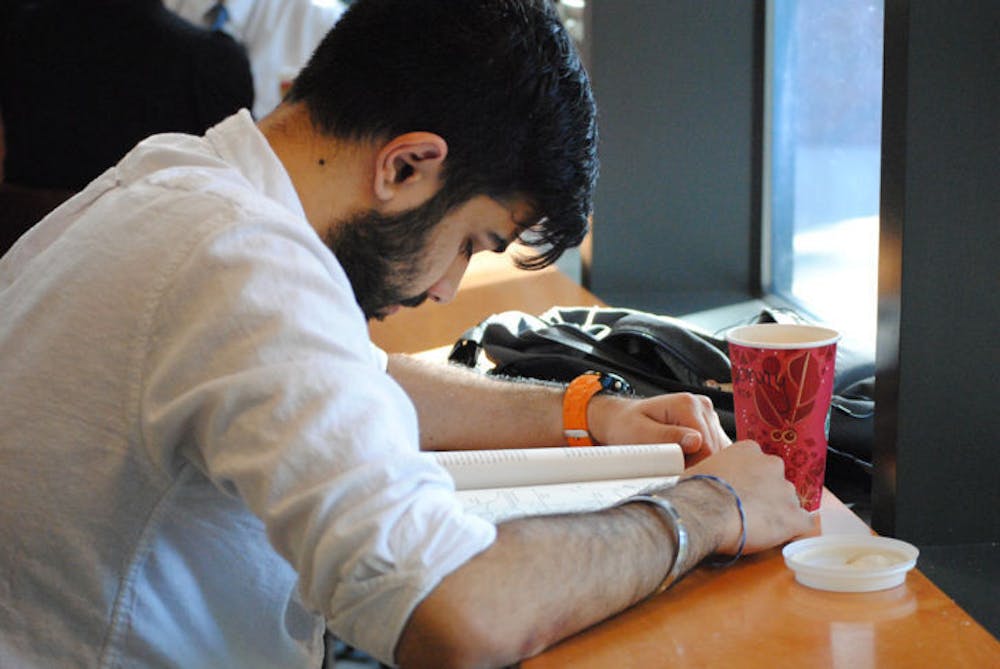With final exam dates approaching, students might want to check the time before checking out the Starbucks menu.
According to a recent article, “The best time for your coffee” by Steven Miller, people using coffee to raise their alertness may be using it at the wrong time of the day.
Chronopharmacology, which studies how biological rhythms and drugs interact, showed cortisol production in the body is directly tied to a person’s level of alertness and reaches its peak between the hours of 8 and 9 a.m., noon and 1 p.m., and 5:30 and 6:30 p.m.
Any caffeine consumption during these hours wouldn’t increase alertness levels and could interrupt the person’s circadian rhythm.
Caryn Barry, a 19-year-old UF business administration junior and a barista at Pascal’s Coffeehouse, said the morning rush is usually between 9 and 10 a.m., which the article says is after cortisol levels begin receding.
Barry said she has noticed people usually order the tallest size they have, but it’s difficult to judge if people are ordering for taste or caffeine.
Connor Grill, a 19-year-old UF political science freshman, said he has a cup of coffee every day at around 6 p.m., but he doesn’t do it for the taste.
“I would rather have hot chocolate,” he said. “But that doesn’t make me focus as much.”
Grill said he only orders coffee with cream and sugar, not any blended or iced drinks.
To kickstart the circadian rhythm in the morning, Miller also suggested driving to work with sunglasses off.
A version of this story ran on page 5 on 11/12/2013 under the headline "Coffee time not any time, article says"
Sundeep Singh, 20, drinks coffee while studying at the Library West Starbucks on Wednesday afternoon. Recent studies suggest people do not regularly consume coffee during the hours that would have the strongest effect.






